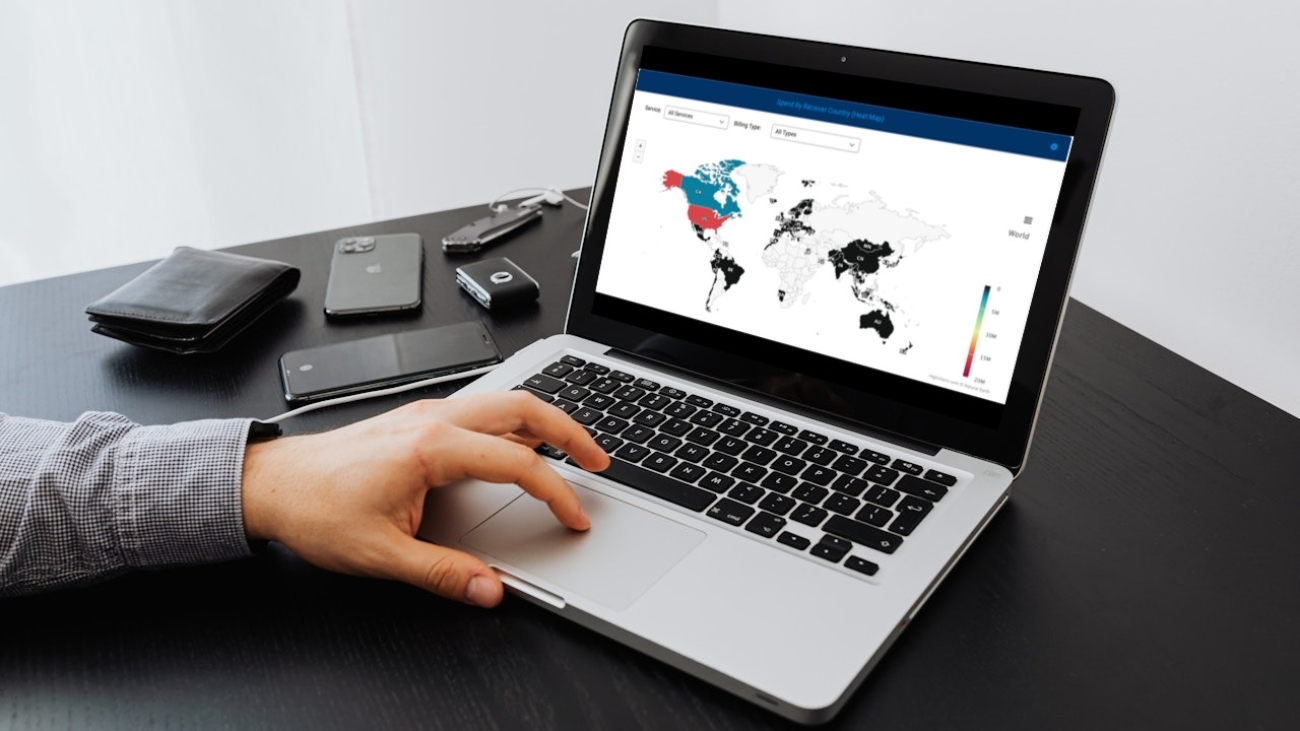Over the years, the global Freight Audit and Payment market has been gaining momentum. According to the latest reports, the FAP market will grow by 2032 to US$ 3,147.1 million. Advancement in technology is one of the prime reasons for the growth. Logistic firms are spending more on technology than ever before. Moreover, companies are looking for sustainable solutions for their supply chains that will reduce costs.
The demand for real-time auditing is rising due to the complexities of freight audits. Cloud-based solutions and technology like Artificial Intelligence (AI) are improving logistics operations. Shippers are outsourcing Freight Audit and Payment (FAP) processes to streamline their shipping operations. Automating the freight audit processes and data analytics ensures robust financial stability for businesses.
Our earlier blogs were on freight audit processes. This blog will discuss the best Freight Audit and Payment practices for effective transportation management.
Freight Audit and Payment (FAP)
Companies have to control shipping expenses and efficiently manage goods. Freight audits help shippers efficiently manage Transportation spend. Freight audits involve examination and verification of freight invoices for errors. Freight auditing involves identifying duplicate invoices, tracking delayed shipments, and verifying surcharges.
After confirmation of the accuracy of the freight bills, shippers make payments to the shipping carriers. Further, freight charges, taxes, and handling charges are also a part of freight payments. Freight payments to freight carriers are on the agreed contract payment terms. Interruptions in freight payments may cause carrier service deficiencies.
Freight Audit and Payment processes are crucial for businesses to optimize their shipping processes. Shippers can save costs with efficient FAP processes. Let us focus on Freight Audit and Payment best practices to improve shipping operations. Here are the top three best practices for managing Freight Audit and Payment processes.
1. Strategizing Freight Audit and Payment Process
Businesses are required to adapt and strategize intelligent ways to use data. Analyzing freight spend data can enrich Freight Audit and Payment processes. Document collection like bill of lading (BOL), contracts, and carrier invoices is necessary for freight auditing. Organized documentation and optimum procedures streamline FAP processes. Guidelines, rules, and responsibilities need definition to audit freight invoices.
The focus has to be on freight rates, surcharges, and time to conduct the freight audit. Shipping volumes, weight, costs, and carrier performance need consideration. In addition, the audit requires a review of dedicated resources and technology. Shippers and freight auditors have to set goals to save transportation costs. Further, executing a plan to achieve the goal in a specific timeline is necessary. It needs complete collaboration of all stakeholders for successful logistics management.
2. Leveraging technology for Freight Audit processes
Advanced technologies and software related to freight auditing are advantageous for freight payment processes. High-level data analytics helps analyze transportation spend and aid in strategic business decisions. Shipping data processing in real-time reduces errors in freight billing. Integrated, operable supply chain systems rely on technologies like the Internet of Things (IoT) and Artificial Intelligence (AI).
Automated freight invoice auditing helps verify freight bills and eliminates duplicate payments. Further, cloud-based platforms review freight documents in real time and location. An extra level of protection controls in the freight audit software can detect anomalies in freight invoicing. Using electronic invoicing is essential, considering the complexities of freight auditing.
Upgrading to electronic invoices
The advantages of shifting to electronic invoices in freight shipping are numerous. Firstly, it removes the need for paper documentation, filing, and manual review. The removal of manual entry of data prevents risks of data input mistakes. Further, digitized invoices give accurate shipping information.
A common type of electronic invoicing used in logistics is Electronic Data Exchange (EDI) technology. EDI sends and receives freight bills of lading (BOLs) and invoices from freight carriers. Moreover, electronic invoicing uses one platform for a network of buyers and sellers. By upgrading to electronic invoices, businesses can
- manage their finances
- improve operational efficiency
- and reduce shipping expenses
Predictive analytics and blockchain technology can detect and forecast potential discrepancies in freight invoices. By analyzing historical shipping data, technology can help businesses save money.
3. Transparent pricing agreements with carriers
It is essential to have negotiations on pricing agreements between shippers and freight carriers. Agreements regarding the service levels, freight rates, and surcharges need clarity. Freight contracts and pricing agreements require regular review and updation. Surcharges like fuel surcharges, additional handling charges, and freight tariffs are part of the agreement during contract negotiations.
Freight payments are possible after validating each invoice against the charges in the transportation pricing agreement. Verifying the accuracy of the surcharges, weight calculations, and discounts with supporting documents can save shipping costs. In addition, keeping track of freight carrier performance helps businesses. For instance, delays in on-time shipping deliveries need monitoring.
Effective communication with network partners
It is necessary to have a clear line of communication with network partners. Discussing shipment needs with freight carriers provides an overview of the shipping industry. Further, effective communication during contract negotiations gives shippers a chance to crack a good deal. It builds trust and goodwill with the freight carriers and further better rates and discounts.
Understanding the reasons for late payments to freight carriers and reviewing payment policies is vital for organizations. Further, monitoring freight spend patterns optimizes shipping operations and lowers shipping costs. These factors can enhance the cost-efficiency of Freight Audit and Payment processes for shippers.
Following these freight audit and payment best practices makes managing transportation costs easier.
Freight Audit services by Audintel
With Audintel’s Freight Audit services, companies can avoid overcharges and save money. Our agile AI-powered platform identifies all invalid, inaccurate freight invoices. Our automated audit and claim filing process saves shipping costs for companies. The accurate data from our cloud-based technology ensures freight payments are on time.
Audintel’s Freight Audit services
- Verifies shipping information
- Identifies invalid or inaccurate freight invoices
- Points out unwarranted charges
- Confirms freight rates and discounts
- Reviews surcharges and service levels
- Checks duplicate payments and overcharges
- Complies with regulatory requirements
Audintel generates automated, comprehensive, customized shipping reports providing an overview of shippers’ shipping costs. Our software solutions offer transportation spend visibility to companies. Audintel’s intuitive platform and customized dashboards give shippers an overview of their shipping data. It ensures that companies have real-time visibility of shipping data. Shippers have shipping data at their fingertips and can make informed decisions. Further, our Transportation Spend Management tool identifies freight billing errors causing a reduction in annual shipping expenses.
The bottom line
Businesses can manage their shipping costs using Freight Audit and Payment processes. Automated Freight Audit and Payment systems bring data transparency. FAP processes involve reviewing freight invoices, verifying their accuracy, and paying freight carriers. Freight audits can cut costs and provide cost-saving opportunities to businesses. Freight costs are managed easily with the latest technology tools. Outsourcing freight auditing to professionals provides cost-saving opportunities for businesses.
Audintel is a premier Freight Auditor that manages Transportation Spend for many shippers. Our next-generation data analytics tool provides real-time visibility of shipping data. Audintel’s easy-to-understand shipping reports give shipment details, payment details, and surcharge expenses. Further, our robust business intelligence tools manage multiple Carrier pricing agreements. It helps in calculating shipping costs based on complex carrier rules. Audintel’s cloud-based platform can automate and streamline shipping processes. Our dedicated Call center staff manually negotiates claims with shipping carriers. Our back-office support team are experts in providing insights into different aspects of transportation spend management.
If you want to learn more about our well-regulated freight audit services, call us at +1 (619) 354 8539. Further, you can learn about our customized audit services at the Audintel website.





